|
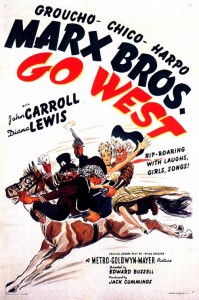
Synopsis:
The grandfather (Tully Marshall) of a poor woman (Diana Lewis) hoping to marry her fiancee (John Carroll) gives his two fellow prospectors (Chico and Harpo Marx) a seemingly worthless deed, which is soon coveted by two evil railroad barons (Walter Woolf King and Robert Barrat) hoping to sell the land to the U.S. government for $50,000.
|
|
Genres, Themes, Actors, and Directors:
- Comedy
- Marx Brothers Films
- Westerns
Review:
Other than the unusual late-career entry Love Happy (1949), Go West is the final Marx Brothers film listed in Peary’s book. [Fortunately, despite his completist tendencies, he omits the notorious Marxian clunkers The Big Store (1941) and A Night in Casablanca (1946).] As a standard vehicle for their talents, it’s certainly competent enough: by this point, audiences knew what to expect from a Marx Brothers film, and the western genre hadn’t yet been milked, so this was as good a choice as any for a setting. While there aren’t really any laugh-out-loud sequences, I did find it interesting to see how Harpo would manage to secure a “harp” in the Old West (he utilizes a Native American loom!):
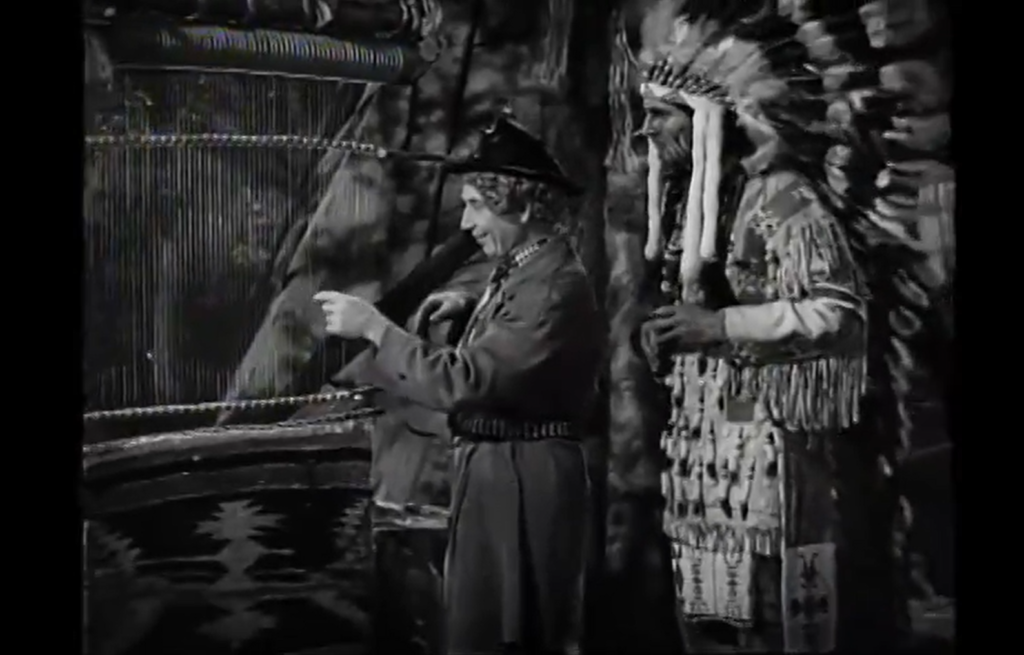
— and there were enough witty verbal exchanges to keep me at least intermittently engaged. Note that the slapstick climax on board a train owes quite a bit to Buster Keaton’s The General (1926); indeed, Keaton actually served as an advisor on the film.
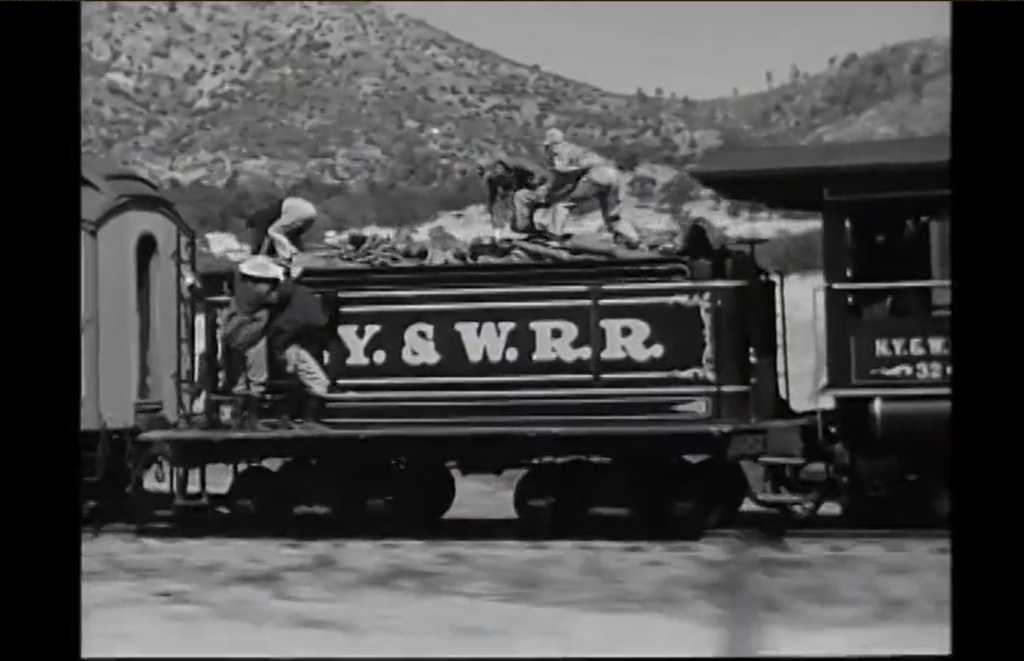
Redeeming Qualities and Moments:
Must See?
No, though naturally fans will want to check it out.
Links:
|



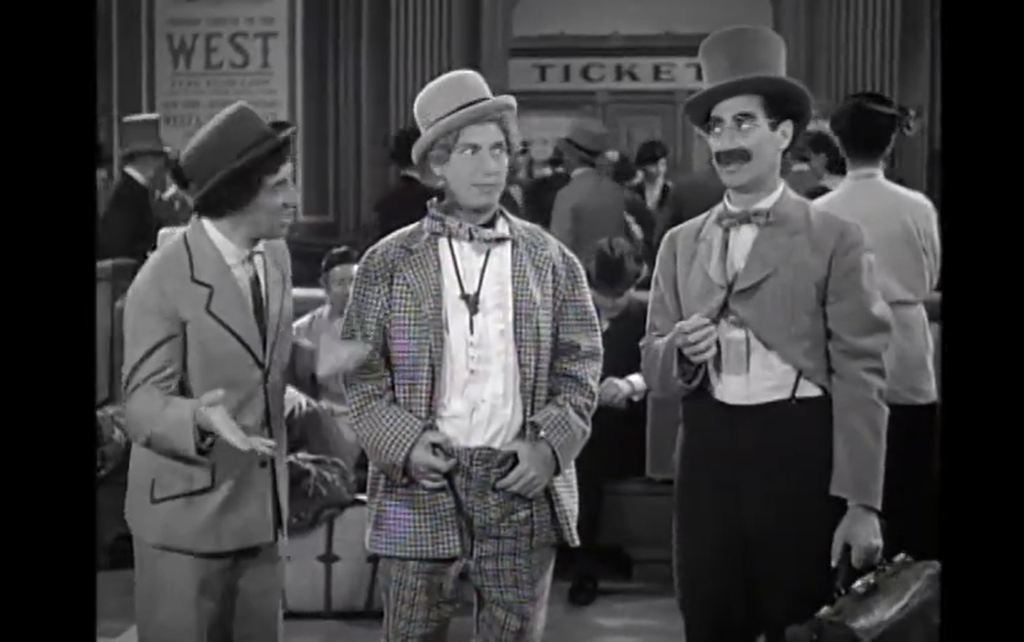
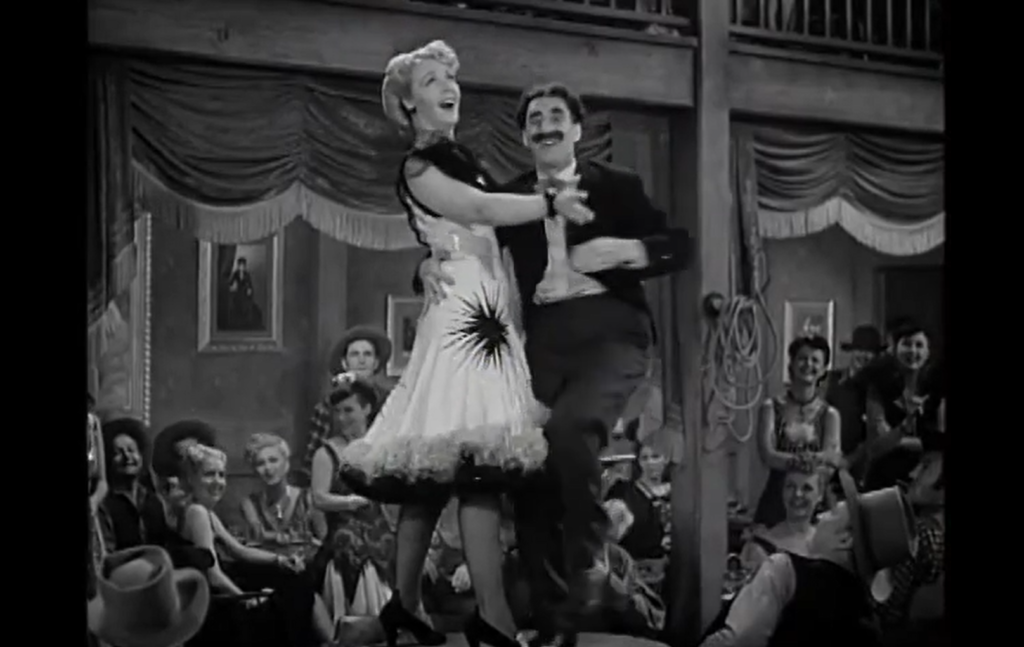
One thought on “Go West (1940)”
First viewing. Even though I’m not wildly enthusiastic about this Marx entry, it’s still more than pleasant – and an ideal diversion, esp. for younger ffs to watch with elder film fanatics.
Is it hilariously funny? Well, no – but, if you settle in for the full silliness of Irving Brecher’s script, you should find this rather consistently amusing. There’s a clever-enough plot to hang the jokes onto and director Edward Buzzell knows a thing or three about comic timing (esp. in the noted cash-exchange scene). Some nice tunes are tossed in for good measure, not the least of which are supplied by Chico on piano and Harpo on harp. A particular musical highlight is served up by MacCloy and Groucho, singing ‘You Can’t Argue with Love’ in a saloon.
Overall, since I wasn’t expecting much (the film career of the Brothers being so hit-or-miss), I was surprised to discover this to be rather entertaining even if not top-tier stuff.
Controversial trivia: Groucho’s character’s name proved scandalous when the film opened – since ‘S. Quentin Quale’ referred to ‘San Quentin quail’, meaning ‘jail bait’.